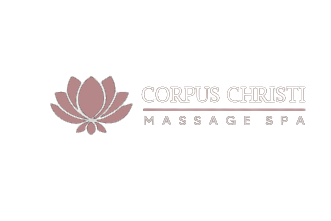5 Situations when massage therapy can do more harm than good
As much as we all love getting massages, there are times when a massage may not be the best idea for our bodies. While massages can relieve tension, increase circulation, and ease pain, there are certain conditions that may make a massage not so beneficial or even potentially harmful. Here are some of the situations when a massage may become a less than good idea.
1. Recent injuries
If you have recently suffered from a muscle sprain, tear, or any other type of injury, getting a massage may not be the best idea. While massages can stimulate blood flow and promote healing, a therapist applying too much pressure or targeting a specific area could do more harm than good.
2. Skin infections or irritations
If you have any type of skin irritation or infection such as a rash, hives, or bug bites, getting a massage can spread the infection or irritate the area even further. Additionally, if there is an open wound or sore, this could increase the risk of infection.
3. Chronic and acute medical conditions
If you have a chronic or acute medical condition such as arthritis, osteoporosis, cancer, or a blood clotting disorder, a massage may not be safe. In some cases, a massage may be contraindicated or require the therapist to modify the session to avoid exacerbating your condition.
4. Pregnancy
While massages can be incredibly beneficial during pregnancy, there are certain areas of a pregnant woman’s body that should not be targeted during a massage, such as the abdomen or lower back. Additionally, some essential oils and massage techniques may not be suitable for pregnant women.
5.Recent surgeries
If you have recently undergone surgery, getting a massage may not be recommended. Certain areas of your body may be tender or sore, and massaging the area could slow down the healing process.
As a seasoned expert in massage therapy, it is no secret that massage can have a myriad of benefits. From rejuvenating the body to promoting relaxation and relieving pain, massage has been used as a therapeutic tool for centuries. However, there are times when massage may not be the best idea.
For one, if a client is experiencing an acute injury, such as a sprained ankle or an open wound, then massage therapy may be contraindicated. In these cases, a licensed healthcare professional should be consulted to ensure that the injury is properly addressed before massage is considered. According to a survey by the American Massage Therapy Association, 82% of individuals who had a massage in the past year found it effective for reducing pain and stress. However, massage therapy can cause unwanted effects in some cases, including bruising, soreness, and aggravation of existing injuries.
Another time when massage may not be recommended is if a client is experiencing a medical condition that could be exacerbated by massage, such as deep vein thrombosis or a blood clot. In such cases, massage can potentially dislodge blood clots, which can lead to serious complications.
Finally, if a client is excessively fatigued or has a weakened immune system, then massage therapy may not be the best form of treatment. In these instances, the body may not have the necessary energy to withstand the physical pressure and manipulation of massage therapy.
Overall, while massage therapy can be an excellent form of natural healing and pain relief, it is essential to understand when it may not be the best treatment option. As with all forms of alternative therapy, it is crucial to check with a qualified professional to determine if massage therapy is appropriate for your unique situation.
While massage therapy is generally suitable for most people, there are scenarios where it may not be the best course of action. Certain conditions could make a massage inadvisable, due to the potential hazards posed to both the client and the therapist. For instance, if you have an infectious viral or bacterial ailment such as a cold, flu, or other contagious illnesses, your therapist is likely to decline working with you to avoid contracting same. It is crucial to avoid spreading the infection to others who may come in contact with the therapist.
Although a massage may appear comforting when you have a cold or flu, getting one could prove detrimental to your body’s recovery rate as it is already working overtime to combat the virus or bacteria. Consequently, undergoing a massage could create additional stress on your body at a time when you need to rest.
If you are under the influence of alcohol, it’s best to postpone your massage appointment. Many people turn to massage therapy while on vacation or dealing with stress and may even indulge in a few drinks to unwind. However, being intoxicated is risky during massage sessions as it can make it difficult for you to provide accurate feedback to your massage therapist on their methods. Desensitization caused by alcohol consumption can skew your perception of pressure levels, which is important for keeping the massage both comfortable and effective.
Another situation in which massage should be avoided is when you are dealing with an acute injury, such as a muscle strain. Although a massage may seem like a quick fix to alleviate the pain, if the area is damaged, it’s better to refrain from massage. While massage therapy can help with muscle relaxation, it can also interfere with the healing process in acute injuries.
An effective therapist will lead the conversation about your health concerns, enabling them to determine the appropriate method for you and whether or not a massage is appropriate for you that particular day. It is critical to alert your massage therapist of any health problems or medications you may be taking before receiving a massage. If a massage therapist has concerns about how massage may affect your condition, they may ask to discuss with your physician. Although it is uncommon, there are sometimes situations where massage is not advised for an extended period. Nonetheless, massage therapy has a plethora of restorative advantages.
Massage therapy can be a wonderful way to relax and relieve tension in your muscles. However, there are some instances when getting a massage may actually do more harm than good [Source].
Important tips to keep in mind for massage therapy
Communicate with your massage therapist
It’s important to communicate with your massage therapist about any medical conditions or injuries you have. If you are experiencing pain or discomfort, let them know so they can adjust their techniques accordingly. Be honest about your pain levels, even if you think it might be a minor issue. Massage therapists are trained professionals and can help you decide whether massage is the right option for you.
Avoid massage if you have certain medical conditions
Massage can be harmful or even dangerous in some cases. If you have a fever, skin infections, or open wounds, it’s best to skip the massage. If you have deep vein thrombosis (DVT), a blood clotting disorder, or cancer, make sure to check with your doctor before getting a massage {UTexas}. In some cases, massage may be contraindicated for certain medical conditions, and your doctor may recommend alternative therapies.
Avoid massage if you have acute injuries
If you have recently suffered an acute injury such as a sprain or strain, avoid massage therapy until swelling and inflammation have subsided. Instead, focus on rest, ice, and compression to help reduce swelling and promote healing. Massage therapy too soon after an injury could actually make the injury worse.
Avoid massage if you have a skin condition
If you have a skin condition such as eczema or psoriasis, it’s important to avoid massage therapy until the condition has cleared up. Massage therapy can irritate the skin (AMTA), and may even spread the condition.
Pregnant women need to be cautious
While massage can be very useful during pregnancy, it’s important for pregnant women to be cautious. Some massage techniques and body positions can put pressure on the abdomen, which can be harmful for the fetus. Make sure to find a qualified massage therapist who has experience working with pregnant women, and make sure they are using pregnancy-safe techniques.
When massage may become a not so good idea
- What are the risks associated with massage therapy?
Massage therapy has a low likelihood of causing harmful effects. Nevertheless, there are infrequent accounts of severe adverse reactions, including nerve damage, bone breakage, or blood clotting.
-
What are the red flags to watch out for before getting a massage?
It’s a straightforward matter – you don’t have a fondness toward your therapist, there’s an overwhelming push, it is not an establishment for massages, as soon as you enter, your mood instantly plummets, your words fall upon deaf ears, or they seem to lack focus and attention.
-
How can one determine if they are a good candidate for massage therapy?
You’re experiencing symptoms of anxiety and depression, you feel constantly tired, you frequently have headaches and migraines, you experience muscle pains, you have developed repetitive stress injuries. you desire to destress and find relaxation, there are no underlying illnesses present.
-
Can massage therapy worsen existing injuries or conditions?
Naturally, the most problematic type of massage is strong, deep tissue massage. It has the potential to worsen existing issues rather than provide relief. For individuals with chronic pain, it can even lead to catastrophic psychological damage, which is referred to as a “sensory injury.”
Overall, massage therapy can be a great way to relax and improve your health, but it’s important to be mindful of any conditions or injuries that may make massage therapy unsafe. Make sure to communicate with your massage therapist, check with your doctor if you have any medical conditions, and avoid massage if you have any acute injuries or skin conditions. By being mindful, you can safely enjoy the benefits of massage therapy.
In conclusion, while massages can be incredibly beneficial for our overall health and wellbeing, there are certain situations where a massage may not be the best idea. As always, it is important to communicate with your massage therapist and inform them of any current medical conditions or recent injuries, so they can safely and effectively adjust their techniques and pressure.



